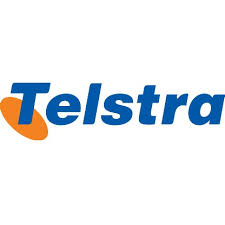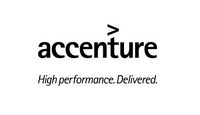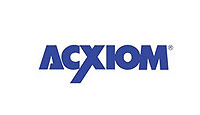RACKWISE®‘s corporate governance specifies the industry rules and procedures for its corporate decision making.
RACKWISE® Corporate Governance Articles
Below you’ll find the CODE OF CONDUCT, INSIDER TRADING POLICY and REGULATION FD POLICY information.
Feel free to contact us with specific questions or comments related to our governance articles.

CODE OF CONDUCT
The RACKWISE® Code of Conduct (“Code”) sets forth the Company’s standard of business practice. This Code applies to RACKWISE® and its subsidiaries, and all directors, officers, and employees (including contractors, consultants or temporary workers) of each. All references to “employees” include directors, officers, and employees of RACKWISE® and its subsidiaries.
RACKWISE® and its employees will not discriminate on the basis of race, gender, sexual orientation, or age, and will be sensitive to cultural differences in the regions in which RACKWISE® operates, adopting best practices available internationally.
All employees are accountable and responsible for understanding and complying with this Code, applicable laws, regulations, and RACKWISE® policies that are related to their jobs. In fulfilling these responsibilities, each employee must:
- Read, understand, and comply with this Code and all RACKWISE® policies that are related to his/her job.
- Participate in training and educational programs/events required for his/her job.
- Make a commitment to conduct RACKWISE® business with integrity and in compliance with applicable laws and regulatory requirements.
- Report possible violations of this Code, policies, applicable laws, and regulatory requirements.
- Obtain guidance for resolving a business practice or compliance concern if he/she is uncertain about how to proceed in a situation.
- Deal honestly with colleagues, customers and suppliers.
- Provide full details of all relationships that may, in the course of a transaction be construed as creating a conflict of interest or appearance of a conflict of interest. A “conflict of interest” exists when an individual’s private interests interfere or conflict in any way (or even appear to interfere or conflict) with the interests of RACKWISE®.
- Proactively provide all information to superiors that may have a material influence on matters under consideration.
- Support and maintain systems of internal control, and not seek to over ride such internal controls by acts of omission or commission.
- Protect the interests of shareholders.
- Provide full, fair, accurate, timely and understandable information in all internal reports and documents filed with the Securities and Exchange Commission or any other government agency, or releases to the public.
- Act in good faith, responsibly, with due care, competence and diligence, without misrepresenting material facts.
- Protect and respect the confidentiality of information acquired in the course of his/her work except when authorized or otherwise legally obligated to disclose, and not use confidential information for personal advantage.
- Achieve responsible use of, and control over, all assets and resources employed by or entrusted to him/her.
- Cooperate fully in any investigation.
RACKWISE® is committed to conducting its business in strict compliance with all applicable governmental laws, rules and regulations, including but not limited to laws, rules and regulations related to securities, labor, employment and workplace safety matters. All RACKWISE® officers, directors and employees are expected at all times to conduct their activities on behalf of RACKWISE® in accordance with this principle RACKWISE® expects its employees, officers and directors to deal fairly with RACKWISE®’s financial institutions, suppliers, vendors, competitors, agents and employees, to base business relationships on lawful, efficient and fair practices and to use only ethical practices when dealing with actual or potential financial institutions, vendors, competitors, agents, employees and other parties.
It is the obligation of every RACKWISE® employee to conduct business in a manner that avoids even the appearance of ethical or legal impropriety and is consistent with all applicable laws and regulations. Specifically, no RACKWISE® employee, officer or director shall give or accept anything of value from any current or potential financial institutions, supplier or vendor as an inducement for or in return for business or preferential treatment; or take advantage of any financial institution, supplier, competitor or employee through manipulation, concealment, abuse of privileged information, misrepresentation of material facts, or any other unfair business practice.
RACKWISE® is required by law to make full, fair, accurate, timely and understandable disclosure in the reports and documents that RACKWISE® files with, or submits to the SEC and in all other public communications it makes.
In order for RACKWISE® to comply with its public disclosure obligations, it has adopted the following principles:
- Business transactions must be properly authorized and be completely and accurately recorded on RACKWISE®’s books and records in accordance with generally accepted accounting practices, and established RACKWISE® financial policy.
- Each RACKWISE® employee, officer and director must help to maintain the integrity of RACKWISE®’s record keeping and reporting systems and is responsible for maintaining complete and accurate records, accounting entries and classifications.
- RACKWISE® employees, officers and directors are expected to comply fully and accurately with all audits, requests for special record keeping or retention of documents, documents or other material from or on behalf of RACKWISE®’ s auditors, RACKWISE®’s CEO, CFO, or RACKWISE® management.
All RACKWISE® employees will deal honestly and accurately with government officials and agencies, comply with applicable laws and regulations relating to working with government officials and agencies, particularly special requirements associated with government contracts and transactions, and not make any substitutions nor deviate from contract requirements without the written approval of the authorized government official.
RACKWISE® prohibits participation in bribes or kickbacks of any kind, whether in dealing with public officials or individuals in the private sector.
RACKWISE® is committed to abiding with the standards of conduct set forth in the U.S. Foreign Corrupt Practices Act and the anti-corruption and anti-money laundering laws of the countries in which RACKWISE® operates.
Breaches
This Code sets forth the minimum standard of behavior RACKWISE® expects of its employees. The Company may take any breach of this Code by an employee into account when assessing performance pay, discretionary bonuses, merit raises, and/or renewal of fixed term contracts. In material cases, RACKWISE® may deem a breach of this Code a breach of your employment contract or the terms of your employment, and consider such breach cause for termination. Such violator may also be subject to civil action and/or referral to law enforcement agencies for criminal prosecution
Reporting of Breaches or Suspected Breaches
It is the responsibility of every employee to promptly report any fraud or breach or suspected breach of this Code.
Unless the suspected breach is by an employee’s immediate supervisor/manager, the normal channel of reporting is through the employee’s supervisor/manager with a copy to the CF). In the case of suspected breach by the reporting employee’s supervisor/manager, the reporting channel is to the Company’s Chief Financial Officer, with a copy to the Company’s Chief Executive Officer. In the case of suspected breach by a member of the Executive Committee of the Company (e.g., CEO, CFO) the procedure is to report to another member of the Executive Committee with a copy to the Chairman of the Audit Committee of the Board of Directors.
RACKWISE® expects all employees to cooperate in internal investigations of misconduct and violations of this Code.
Employees should be aware that RACKWISE® has a statutory duty to protect any employee who reports his or her concerns in good faith, and to ensure that there is no retaliation. Reports will be treated in a confidential manner.
Waivers of the Code
Only the Audit Committee of the Board of Directors may waive a provision of this Code. Any such waiver of this Code will be promptly disclosed as required by law or regulation. Requests for waivers must be made in writing to RACKWISE®‘s Chairman of the Board and to the Audit Committee Chairman prior to the occurrence of the violation of this Code.
Insider Trading Policy
- Introduction
The purpose of this Insider Trading Policy (“Policy”) is to promote compliance with applicable securities laws by RACKWISE®, Inc. (“RACKWISE”) and all directors, officers and employees thereof, in order to preserve the reputation and integrity of RACKWISE® as well as that of all persons affiliated with it.
- Applicability
The Policy is applicable to all directors, officers and employees of RACKWISE®. The Policy applies to our employees located in and outside the United States alike.
Questions regarding this policy should be directed to the Company’s Executive Vice President & V.P. Corporate Communication who may refer the question to the Company’s corporate counsel.
- Policy
If a director, officer or any employee of the Company or any agent or advisor of the Company has material, nonpublic information relating to the Company, it is the Company’s policy that neither that person nor any Related Person (as defined below) may buy or sell securities of the Company (the “Company Securities”) or engage in any other action to take advantage of, or pass on to others, that information. This Policy also applies to material, nonpublic information relating to any other company with publicly-traded securities, including our customers or suppliers, obtained in the course of employment by or association with RACKWISE®.
To avoid even the appearance of impropriety, additional restrictions on trading Company Securities apply to directors and members of executive management. See Section VI.
- Definitions/Explanations
- Who is an “Insider?”
Any person who possesses material, nonpublic information is considered an insider as to that information. Insiders include Company directors, officers, employees, independent contractors and those persons in a special relationship with the Company, e.g., its auditors, consultants or attorneys. The definition of insider is transaction specific; that is, an individual is an insider with respect to each material, nonpublic item of which he or she is aware.
- What is “Material” Information?
The materiality of a fact depends upon the circumstances. A fact is considered “material” if there is a substantial likelihood that a reasonable investor would consider it important in making a decision to buy, sell or hold a security or where the fact is likely to have a significant effect on the market price of the security. Material information can be positive or negative and can relate to virtually any aspect of a company’s business or to any type of security – debt or equity.
Some examples of material information include:
- Unpublished financial results
- News of a pending or proposed company transaction
- Significant changes in corporate objectives
- News of a significant sale of assets
- Changes in dividend policies
- Financial liquidity problems
The above list is only illustrative; many other types of information may be considered “material,” depending on the circumstances. The materiality of particular information is subject to reassessment on a regular basis.
- What is “Nonpublic” Information?
Information is “nonpublic” if it is not available to the general public. In order for information to be considered public, it must be widely disseminated in a manner making it generally available to investors through such media as Dow Jones, Reuters Economic Services, The Wall Street Journal, Associated Press, or United Press International. The circulation of rumors, even if accurate and reported in the media, does not constitute effective public dissemination.
In addition, even after a public announcement of material information, a reasonable period of time must elapse in order for the market to react to the information. Generally, one should allow approximately two full trading days following publication as a reasonable waiting period before such information is deemed to be public. Therefore, if an announcement is made before the commencement of trading on a Monday, an employee may trade in Company Securities starting on Wednesday of that week, because two full trading days would have elapsed by then (all of Monday and Tuesday). If the announcement is made on Monday after trading begins, employees may not trade in Company Securities until Thursday. If the announcement is made on Friday after trading begins, employees made not trade in Company Securities until Wednesday of the following week.
- Who is a “Related Person?”
For purposes of this Policy, a Related Person includes your spouse, minor children and anyone else living in your household; partnerships in which you are a general partner; trusts of which you are a trustee; estates of which you are an executor; and other equivalent legal entities that you control. Although a person’s parent or sibling may not be considered a Related Person (unless living in the same household), a parent or sibling may be a “tippee” for securities laws purposes. See Section V.D. for a discussion on the prohibition on “tipping.”
- Who is an “Insider?”
- Guidelines
- Non-disclosure of Material Nonpublic Information
Material, nonpublic information must not be disclosed to anyone, except the persons within the Company or third party agents of the Company (such as investment banking advisors or outside legal counsel) whose positions require them to know it, until such information has been publicly released by the Company.
- Prohibited Trading in Company Securities
No person may place a purchase or sell order or recommend that another person place a purchase or sell order in Company Securities (including initial elections, changes in elections or reallocation of funds relating to 401(k) plan accounts) when he or she has knowledge of material information concerning the Company that has not been disclosed to the public. Loans, pledges, gifts, charitable donations and other contributions of Company Securities are also subject to this Policy.
- Twenty-Twenty Hindsight
If securities transactions ever become the subject of scrutiny, they are likely to be viewed after-the-fact with the benefit of hindsight. As a result, before engaging in any transaction an insider should carefully consider how his or her transaction may be construed in the bright light of hindsight. Again, in the event of any questions or uncertainties about the Policy, please consult the Company’s Executive Vice President & V.P. Corporate Communications or someone that he or she has delegated responsibility for advising of the Policy.
- “Tipping” Information to Others
Insiders may be liable for communicating or tipping material nonpublic information to any third party (“tippee”), not limited to just Related Persons. Further, insider trading violations are not limited to trading or tipping by insiders. Persons other than insiders also can be liable for insider trading, including tippees who trade on material, nonpublic information tipped to them and individuals who trade on material, nonpublic information which has been misappropriated.
Tippees inherit an insider’s duties and are liable for trading on material, nonpublic information illegally tipped to them by an insider. Similarly, just as insiders are liable for the insider trading of their tippees, so are tippees who pass the information along to others who trade. In other words, a tippee’s liability for insider trading is no different from that of an insider. Tippees can obtain material, nonpublic information by receiving overt tips from others or through, among other things, conversations at social, business or other gatherings.
- Avoid Speculation
Directors, officers and employees, and their Related Persons may not trade in options, warrants, puts and calls or similar instruments on Company Securities or sell Company Securities “short.” In addition, directors, officers and employees, and their Related Persons may not hold Company Securities in margin accounts. Investing in Company Securities provides an opportunity to share in the future growth of the Company. Investment in the Company and sharing in the growth of the Company, however, does not mean short-range speculation based on fluctuations in the market. Such activities may put the personal gain of the director, officer or employee in conflict with the best interests of the Company and its security holders. Anyone may, of course, in accordance with this Policy and other Company policies, exercise options granted to them by the Company.
- Trading in Other Securities
No director, officer or employee may place purchase or sell orders or recommend that another person place a purchase or sell order in the securities of another company if the person learns of material, nonpublic information about the other company in the course of his/her employment with RACKWISE®.
- Non-disclosure of Material Nonpublic Information
- Additional Restrictions & Requirements for Directors & Officers
- Trading Window
In addition to being subject to all of the other limitations in this Policy, directors and members of the Company’s Executive Leadership Team may only buy or sell Company Securities in the public market during the period beginning two full trading days after the release of the Company’s quarterly earnings and ending one calendar month prior to the end of the next fiscal quarter.
- Pre-Clearance
Directors and Officers of the Company (as such term is defined pursuant to Section 16 of the Securities Exchange Act, as amended) must obtain prior clearance from the Company’s Executive Vice President & V.P. Corporate Communications, or his or her designee, as well as the Directors in charge of Executive Compensation, or his or her designee, before he, she or a Related Person makes any purchases or sales of Company Securities, including any exercise of stock options. Prior clearance is required for all purchases or sales, including transfers between the Company’s Common Stock Fund and other investment options in the Company’s 401(k) plans. Each proposed transaction will be evaluated to determine if it raises insider trading concerns or other concerns under the federal or state securities laws and regulations. Any advice will relate solely to the restraints imposed by law and will not constitute advice regarding the investment aspects of any transaction. Clearance of a transaction is valid only for a forty-eight (48) hour period. If the transaction order is not placed within that forty-eight (48)-hour period, clearance of the transaction must be re-requested. If clearance is denied, the fact of such denial must be kept confidential by the person requesting such clearance
- Prohibition on Selling Stock Acquired by Option Exercise
Officers are prohibited from selling Company stock acquired by exercising stock options until such Officer is in compliance with the Company’s stock ownership requirement. Notwithstanding the preceding sentence, Officers may immediately sell Company stock acquired by exercising stock options for the limited purposes of paying the exercise price of the stock option and any applicable tax liability.
- Trading Window
Regulation FD Policy
- Introduction
Rackwise, Inc. (the “Company”) is committed, consistent with legal and regulatory requirements, to maintaining an active and open dialogue with its security holders and potential investors.
The Securities and Exchange Commission’s Regulation FD prohibits the selective disclosure of material nonpublic information to certain enumerated persons. The regulation is intended to eliminate situations where a company may disclose important nonpublic information, such as earnings warnings, to securities analysts or selected institutional investors, before disclosing the information to the general public.
Regulation FD requires that, whenever the Company (or a person acting on its behalf) intentionally discloses material nonpublic information to an Enumerated Person (as described below, including broker-dealers, analysts and security holders), the Company must simultaneously disseminate the information to the public.
If the Company learns that it has unintentionally disclosed material nonpublic information, it must publicly disseminate the information within 24 hours.
This Policy applies to every director and employee of the Company and its subsidiaries, and complements the Company’s insider trading policy.
- Authorized Spokespersons
The only persons authorized to speak on behalf of the Company to Enumerated Persons are the Company’s Executive Chairman; President & Chief Executive Officer; Chief Financial Officer; Executive Vice President & V.P. Corporate Communications; or other persons specifically designated by them to speak with respect to a particular topic or purpose (each an “Authorized Spokesperson”).
To the extent practicable, Authorized Spokespersons should contact an Officer of the Corporation and corporate counsel before having conversations with any Enumerated Person in order to review as much of the substance of the intended communication as possible, including slides and other prepared materials. In addition, to the extent practicable, all Authorized Spokespersons (other than Authorized Spokespersons who are Officers of the Corporation) should be accompanied by an Officer of the Corporation at such conversations.
- “Enumerated Persons” Subject to Regulation FD Disclosure Requirements
Regulation FD prohibits selective disclosure to certain specified persons, including (a) broker-dealers and persons associated with them, including investment analysts; (b) investment advisers, certain institutional investment managers and their associated persons; and (c) investment companies, hedge funds, and affiliated persons.
Selective disclosure is also prohibited if made to any security holder under circumstances in which it is reasonably foreseeable that the security holder would purchase or sell securities on the basis of the information.
Communications in the ordinary course of business with customers, suppliers or strategic partners, as well as communications with the press or news organizations, rating agencies, or the government, are not covered by the regulation.
- Day-to-Day Communications
Inquiries from analysts, security holders and other Enumerated Persons received by any director or employee other than an Authorized Spokesperson as expressly defined above should be forwarded to an Officer of the Corporation, or another Authorized Spokesperson. Under no circumstances should any attempt be made to handle these inquiries without prior authorization from an Authorized Spokesperson.
If practicable, planned conversations should include a designated representative of the Officers of the Corporation. It should be determined in advance whether it is intended that any material nonpublic information be disclosed. If so, the material nonpublic information should be disclosed prior to, or simultaneously with, the planned conversation by the issuance of a press release, the filing or “furnishing” of a report on a Form 8-K, or other means reasonably designed to provide broad, non-exclusionary distribution of the information to the public.
The Officers of the Corporation will periodically update the key public statements and messages and circulate to the Authorized Spokespersons to ensure awareness of information in the public domain.
- Public Disclosure of Significant Company Information
Any time an Authorized Spokesperson determines to disclose or discuss nonpublic Company information with anyone who is or might be an Enumerated Person, there must be a determination made prior to such disclosure, in consultation with the Legal Department and other departments as appropriate, whether the information is material. Information is material if there is a substantial likelihood that a reasonable investor would consider it important in making a decision to buy, sell, or hold a security or where the fact is likely to have a significant effect on the market price of the security. Both positive and negative information may be material.
Possible material information or events include, but are not limited to:
- earnings information and quarterly results;
- guidance on earnings estimates;
- mergers, acquisitions, tender offers, joint ventures, or changes in assets;
- new products, contracts with suppliers, or developments regarding customers or suppliers (e.g., the acquisition or loss of a contract);
- changes in auditors or auditor notification that the issuer may no longer rely on an audit report;
- events regarding the Company’s securities (e.g., defaults on senior securities, calls of securities for redemption, repurchase plans, stock splits or changes in dividends, changes to the rights of securityholders, public or private sales of additional securities or information related to any additional funding);
- bankruptcies or receiverships; and
- regulatory approvals or changes in regulations and any analysis of how they affect the Company.
Furthermore, the adopting release cautions:
- “When an issuer official engages in a private discussion with an analyst who is seeking guidance about earnings estimates, he or she takes on a high degree of risk under Regulation FD. If the issuer official communicates selectively to the analyst nonpublic information that the company’s anticipated earnings will be higher than, lower than, or even the same as what analysts have been forecasting, the issuer likely will have violated Regulation FD. This is true whether the information about earnings is communicated expressly or through indirect ‘guidance,’ the meaning of which is apparent though implied. Similarly, an issuer cannot render material information immaterial simply by breaking it into ostensibly non-material pieces.”
If the determination is made that the information to be disclosed is material, the information must be disclosed via a means reasonably designed to provide broad, non-exclusionary distribution to the public (e.g., a press release or Form 8-K) before or at the same time that the information is disclosed to the Enumerated Person. The public disclosure may either disclose the material information or, if it is issued prior to disclosure to the Enumerated Person, may disclose that a conference call and/or webcast will be held to disclose the information. The public must be given adequate advance notice of any conference call and/or webcast and the means of accessing it.
If a forward-looking statement has been made, i.e., one that has a forward intent and connotation upon which parties can reasonably be expected to rely, an employee with knowledge thereof shall promptly report to the Legal or Officers of the Corporation any facts or events that might cause that meaning to change.
If a meeting or conference call is to be held after the issuance of a press release the purpose of which is to give analysts or major security holders an opportunity to seek more information or ask questions concerning the information disclosed in a press release, the meeting or call shall be preceded by a press release at least a week in advance or as soon as the meeting or call is planned, if later, which shall announce such meeting or call and provide information including the date, time, telephone number and webcast URL for the meeting or call. The meeting or call shall be open to analysts, media representatives and the general public. Notwithstanding the foregoing, any such meeting or call held for the purpose of providing immaterial information shall not be subject to the requirements of this paragraph.
If a director or an employee of the Company learns of information that causes him or her to believe that a disclosure may have been misleading or inaccurate when made or may no longer be true, such person should report that information immediately to corporate counsel.
- Earnings Calls
Adequate advance public notice shall be given of any quarterly earnings conference calls and/or webcasts. Notice shall include a press release issued to all major news wires and a posting on the Company’s website with information including the date, time, telephone number and webcast URL for the earnings call.
A quarterly earnings conference call and/or webcast must be open to analysts, media representatives and the general public. Any such conference call must be recorded and a tape of the call maintained by the Company for at least 12 months. Web replay of such a call must be available for at least seven days after the conference call.
- Guidance, Quiet Period and Analyst Reports
No Authorized Spokesperson shall provide “comfort” with respect to an earnings estimate or otherwise “walk the Street” up or down (i.e., suggest adjustments to an analyst’s estimates). If an analyst inquires as to the reliability of a previously, publicly disseminated projection, the spokesperson should follow the “no comment” policy.
Other than publicly disseminated statements, as such term is interpreted in accordance with Regulation FD, the Company will observe a “quiet period,” during which the Company shall not comment on its earnings estimates or other prospective financial results for the period for the Company. The quiet period will begin one month prior to the end of the quarter and continue until the Company’s earnings information for the applicable period is made public.
Analyst reports and earnings models may only be reviewed to correct errors that can be corrected by referring to publicly available, historical, factual information or to correct any mathematical errors. No other analyst feedback or guidance on earnings models may be communicated to an analyst.
No Company employee should distribute copies of, or refer to, selected analysts’ reports to anyone outside the Company. This is consistent with the Company’s intention not to adopt any particular analyst report.
- Analyst Meetings/ Investment Banker Conferences/ Roadshows
This policy will apply to communications between Authorized Spokespersons and Enumerated Persons at analyst meetings, investment banker conferences and roadshows (other than roadshows undertaken in connection with a public offering of the Company’s securities that is not subject to Regulation FD). Accordingly, prior to the meeting, conference or roadshow, the Company will disclose either through a press release, an open conference call or a webcast, or any combination of these methods, any material information that is not already public and which may be discussed or presented at the meeting, conference or the roadshow.
If it is determined that material nonpublic information may have been disclosed unintentionally during the meeting, conference or roadshow, the corporate counsel should be notified immediately. If the corporate counsel, in consultation with other departments as appropriate, determines that an inadvertent disclosure of material nonpublic information has occurred, a press release or Form 8-K will be issued disclosing the information within 24 hours of such determination.
- Rumors: No Comment Policy
The Company will not comment on market rumors in the normal course of business. When it is learned that rumors about the Company are circulating, Authorized Spokespersons should state only that it is Company policy to not comment on rumors. If the source of the rumor is found to be internal, the corporate counsel should be consulted to determine the appropriate response.
- Violation of this Policy
Violations of Regulation FD are subject to SEC enforcement action, which may include an administrative action seeking a cease-and-desist order, or a civil action against the Company or an individual seeking an injunction and/or civil money penalties. Any violation of this policy by a director or employee shall be brought to the attention of corporate counsel and may constitute grounds for termination of service.












